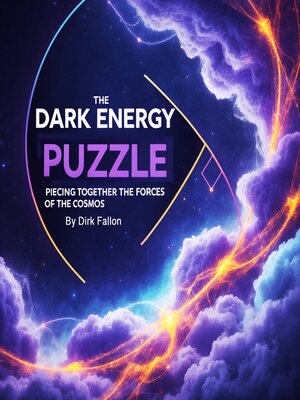The Dark Energy Puzzle
audiobook (Unabridged) ∣ Piecing Together the Forces of the Cosmos
By Dirk Fallon

Sign up to save your library
With an OverDrive account, you can save your favorite libraries for at-a-glance information about availability. Find out more about OverDrive accounts.
Find this title in Libby, the library reading app by OverDrive.



Search for a digital library with this title
Title found at these libraries:
| Library Name | Distance |
|---|---|
| Loading... |
In the late 1990s, astronomers made a discovery that completely changed our understanding of the universe. While studying distant supernovae to measure how fast the universe was expanding, researchers expected to see signs that the expansion was slowing down due to gravity. Instead, they found the opposite—the expansion was speeding up. This unexpected observation pointed to something completely unknown, an unseen force that counteracts gravity and drives galaxies apart at an accelerating rate. That force was given the name "dark energy."
The term "dark" doesn't mean this energy is black or shadowy, but rather that it's unknown and mysterious. Scientists still don't know what it really is, only that it seems to make up around 68 percent of the total energy in the universe. That's a huge amount, especially considering that everything we can see—stars, planets, gas, dust—makes up less than 5 percent. The rest is made of dark matter, another unknown component, but dark energy is even more puzzling. It doesn't clump like matter does, and it seems to be spread evenly through space.
Astronomers began piecing this together by observing Type Ia supernovae, which are exploding stars that always reach roughly the same brightness. Because of that consistency, they can be used like cosmic measuring sticks. When scientists looked at supernovae that were billions of light-years away, they saw that those objects were dimmer than expected. That meant they were farther away than predicted, and the only explanation was that the universe had expanded more than anyone thought. It wasn't just expanding—it was accelerating.







